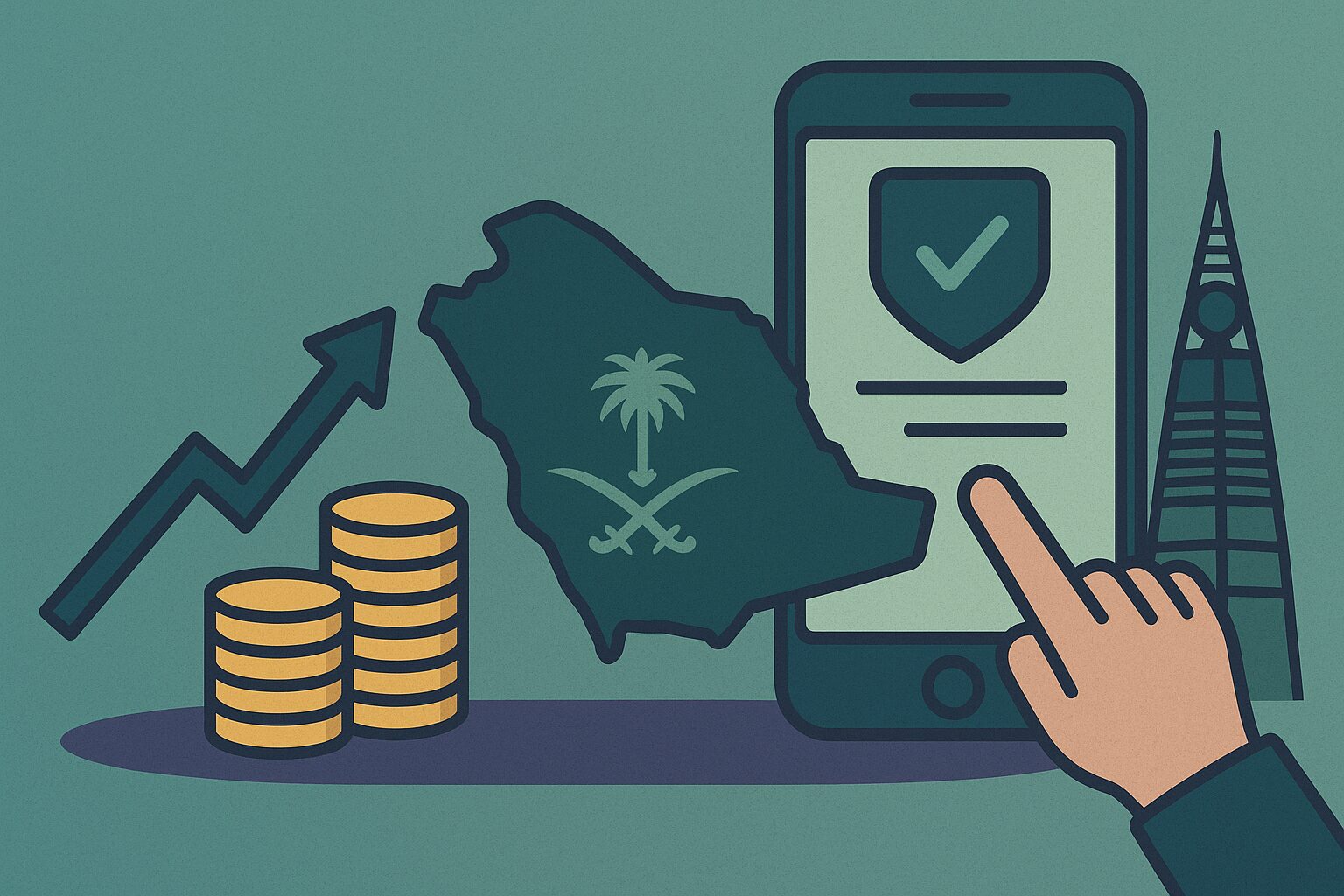In the heart of the Middle East, Saudi Arabia is rapidly transforming into a digital powerhouse. As the Kingdom pursues its Vision 2030 agenda, the demand for Premium e-government services has become a cornerstone of national progress. For Digital Transformation Managers, the challenge is clear: how to overcome the persistent pain points of public service digitization and deliver seamless, secure, and citizen-centric digital experiences at scale.
This in-depth article explores the current landscape, strategic imperatives, and actionable solutions for advancing premium e-government services in Saudi Arabia. Whether you’re leading a government IT team, advising on digital policy, or driving innovation in public sector service delivery, this guide is designed to inform, inspire, and empower you.
The New Era of Premium E-Government Services
The digital revolution is reshaping every aspect of society, and nowhere is this more evident than in the public sector. In Saudi Arabia, Premium e-government services are no longer a luxury—they are a necessity. Citizens and businesses expect fast, secure, and personalized digital interactions with government agencies. For Digital Transformation Managers, this means reimagining service delivery, modernizing legacy systems, and building a culture of innovation.
But the journey is complex. Legacy infrastructure, security concerns, and resistance to change are just a few of the obstacles standing in the way of a truly digital government. This article will illuminate the path forward, providing you with the knowledge and strategies needed to lead Saudi Arabia’s digital transformation.
1. Saudi Arabia’s Digital Transformation: Vision, Strategy, and Progress
Saudi Arabia’s commitment to digital transformation is anchored in its ambitious Vision 2030 strategy. The government’s goal is to create a thriving digital society, a vibrant economy, and an ambitious nation. Central to this vision is the modernization of public services through digital innovation.
Key Milestones
- Global Leadership: In 2024, Saudi Arabia ranked first in the Middle East and North Africa for e-government and mobile services maturity, with a 96% maturity rate (DGA Report).
- Comprehensive Policy Frameworks: The Digital Government Authority (DGA) has established robust regulatory frameworks to ensure interoperability, security, and user-centricity.
- Investment in Infrastructure: Massive investments in broadband, cloud computing, and AI have laid the groundwork for next-generation digital services.
- Citizen-Centric Approach: Initiatives like Absher and Tawakkalna have revolutionized how citizens interact with government agencies.
2.The Role of Digital Transformation Managers
As Digital Transformation Managers, you are the architects of this new era. Your responsibilities include:
- Aligning digital initiatives with national priorities
- Ensuring regulatory compliance and data security
- Driving user adoption and satisfaction
- Managing stakeholder expectations and change
3.Public Service Digitization: Key Pain Points
Despite remarkable progress, several challenges continue to impede the delivery of Premium e-government services in Saudi Arabia. Understanding these pain points is the first step toward overcoming them.
3.1 Legacy Systems and Integration Challenges
Many government entities still rely on outdated IT systems that are difficult to integrate with modern digital platforms. This leads to data silos, inefficiencies, and increased maintenance costs.
3.2 Data Security and Privacy Concerns
With the proliferation of digital services comes heightened risk of cyberattacks and data breaches. Ensuring robust security and privacy is critical to maintaining public trust.
3.3 Digital Literacy Gaps
While internet penetration is high, not all citizens and government employees possess the digital skills needed to fully benefit from e-services. Bridging this gap is essential for inclusive transformation.
3.4 Resistance to Change
Cultural and organizational resistance can slow the adoption of new technologies and processes. Successful digital transformation requires strong change management and leadership.
3.5 Service Quality and User Experience
Inconsistent user experiences across different government platforms can frustrate citizens and undermine confidence in digital services. Delivering a seamless, intuitive, and accessible experience is paramount.
4. Strategic Pillars for Premium E-Government Services
To address these challenges and achieve world-class e-government services, Digital Transformation Managers should focus on the following strategic pillars:
4.1 Digital by Default
Adopt a “digital by default” approach, making digital channels the primary means of service delivery. This includes:
- Prioritizing mobile-first and cloud-native solutions
- Automating routine processes to enhance efficiency
- Ensuring 24/7 availability and reliability
4.2 Security and Privacy
Implement advanced cybersecurity measures and data protection protocols:
- Regular security audits and compliance checks
- Encryption of sensitive data
- User authentication and access controls
- Public awareness campaigns on digital safety
4.3 Digital Literacy and Change Management
Invest in comprehensive training and change management programs:
- Upskill government employees through workshops and e-learning
- Launch public awareness campaigns to promote digital literacy
- Foster a culture of innovation and continuous improvement
4.4 User Experience and Accessibility
Design services with the end-user in mind:
- Conduct user research and usability testing
- Implement feedback loops and continuous improvement cycles
- Ensure accessibility for people with disabilities
4.5 Collaboration and Ecosystem Building
Build partnerships with technology providers, academia, and civil society:
- Leverage public-private partnerships for innovation
- Participate in regional and global e-government forums
- Share best practices and lessons learned
5. Case Studies: Saudi Arabia’s E-Government Success Stories
Saudi Arabia’s journey toward premium e-government services is marked by several high-impact initiatives:
5.1 Absher Platform
Absher is a unified digital platform that provides over 280 government services, from passport renewals to traffic violations. It serves millions of users, streamlining processes and reducing wait times.
5.2 Tawakkalna App
Tawakkalna, initially launched for COVID-19 contact tracing, has evolved into a comprehensive digital gateway for health, travel, and public safety services.
5.3 Digital Healthcare
Telemedicine, e-prescriptions, and online appointment booking have transformed healthcare delivery, improving access and patient satisfaction.
5.4 Smart City Initiatives
Cities like Riyadh and NEOM are leveraging IoT, AI, and big data to create smarter, more efficient urban environments.
6. Emerging Technologies Shaping the Future
The next wave of premium e-government services in Saudi Arabia is being driven by a suite of advanced technologies, each playing a critical role in transforming public sector operations, citizen engagement, and service delivery. Here’s an expanded look at how these technologies are shaping the future:
6.1 Artificial Intelligence (AI)
AI is at the heart of Saudi Arabia’s digital government transformation, with widespread adoption across ministries and public agencies. The Kingdom’s strategy, led by the Saudi Data and Artificial Intelligence Authority (SDAIA), aims to position Saudi Arabia as a global leader in AI by 2030.
Key applications include:
- Smart Decision-Making: AI-powered analytics process vast datasets, enabling government leaders to make informed policy decisions and predict future trends. Machine learning models help optimize resource allocation and anticipate public needs.
- Efficient Public Service Delivery: AI chatbots and virtual assistants handle routine citizen inquiries, reducing the workload on human agents and speeding up response times. Automated workflows streamline administrative tasks, cutting processing times for permits, licenses, and more.
- Predictive Maintenance & Infrastructure: AI algorithms monitor data from IoT sensors to anticipate maintenance needs in public infrastructure, minimizing disruptions and improving facility management.
- Smart Healthcare: AI enhances healthcare through early disease detection, personalized treatment plans, and virtual assistants that support patients 24/7.
- Personalized Digital Experiences: Platforms like the Tawakkalna app leverage AI to provide tailored services to millions, integrating health, justice, education, and more into a single, user-friendly interface.
Saudi Arabia’s commitment is reflected in its rapid digitization—97% of government services are now digital, and AI is central to further personalization and efficiency.
6.2 Blockchain
Blockchain is gaining traction in Saudi e-government for its ability to deliver secure, transparent, and tamper-proof transactions:
- Digital Identity: Blockchain-based digital IDs enhance security and simplify citizen authentication for online services.
- Transparent Transactions: Immutable ledgers ensure transparency in government financial transactions, procurement, and record-keeping.
- Tamper-Proof Records: Blockchain secures sensitive records—such as legal documents, land registries, and medical histories—against unauthorized alterations.
The government is exploring blockchain to reinforce trust and accountability across public sector operations, with plans to expand its use for secure service delivery and data management.
6.3 Internet of Things (IoT)
IoT devices are revolutionizing public infrastructure management and service responsiveness:
- Smart Cities: Sensors monitor traffic, air quality, utilities, and public safety, enabling data-driven urban planning and real-time problem resolution.
- Public Asset Management: IoT-enabled monitoring systems track the condition of government assets, from roads to utilities, allowing for predictive maintenance and efficient resource use.
- Citizen Engagement: IoT devices can facilitate interactive public services, such as smart parking, waste management, and emergency response systems.
Saudi Arabia’s smart city initiatives, particularly in Riyadh and NEOM, are at the forefront of IoT integration, making urban environments safer, greener, and more efficient.
6.4 Cloud Computing
Cloud computing is the backbone of scalable, flexible, and cost-effective e-government services:
- Rapid Service Deployment: Cloud platforms allow government agencies to launch new digital services quickly and efficiently, meeting rising citizen expectations.
- Resource Optimization: Shared cloud infrastructure reduces IT costs, streamlines maintenance, and enables agencies to scale resources as needed.
- Enhanced Security: Government clouds, such as Saudi Arabia’s Deem platform, offer high security standards and centralized management, ensuring data protection and regulatory compliance.
- Collaboration and Innovation: Cloud-based environments facilitate cross-agency collaboration and integration with emerging technologies like AI and IoT.
Cloud adoption is accelerating, with the government leveraging both public and private cloud solutions to modernize its digital infrastructure.
6.5 Open Data and APIs
Open data and application programming interfaces (APIs) are key enablers of innovation and transparency:
- Open Data Initiatives: By making government data publicly available, Saudi Arabia encourages third-party developers and startups to create value-added services, boosting the digital economy.
- API Ecosystems: APIs allow secure, standardized integration between government platforms and external applications, fostering interoperability and seamless user experiences.
- Transparency and Accountability: Open data supports evidence-based policymaking and enables citizens to monitor government performance.
These initiatives are helping Saudi Arabia build a vibrant digital ecosystem, where government, businesses, and citizens can collaborate to solve public challenges and unlock new opportunities
7. A Roadmap for Digital Transformation Managers
To successfully deliver Premium e-government services, Digital Transformation Managers should follow a structured roadmap:
7.1 Assess Digital Maturity
Conduct a comprehensive assessment of your organization’s digital maturity, identifying strengths and areas for improvement.
7.2 Define a Clear Digital Strategy
Develop a strategic roadmap aligned with national priorities and regulatory requirements. Set clear goals, KPIs, and timelines.
7.3 Prioritize High-Impact Initiatives
Focus on quick wins that demonstrate value and build momentum. Pilot projects in areas such as digital identity, payments, or citizen engagement can yield significant benefits.
7.4 Invest in Talent and Culture
Recruit and retain top digital talent. Foster a culture of collaboration, innovation, and continuous learning.
7.5 Monitor, Measure, and Iterate
Use data-driven insights to monitor progress, measure impact, and continuously refine your approach.
webkeyz: Accelerating Saudi Arabia’s Vision for Premium E-Government Services
Delivering premium e-government services requires more than technology—it demands vision, expertise, and a trusted partner who understands the unique challenges of the Saudi public sector.
Why Partner with webkeyz?
webkeyz is a leading digital transformation consultancy with a proven track record in designing and implementing user-centric e-government solutions. Here’s how webkeyz can accelerate your journey:
- Local Expertise: Deep understanding of Saudi Arabia’s regulatory environment, cultural context, and digital landscape.
- End-to-End Solutions: From strategy and design to implementation and support, webkeyz offers a full suite of services tailored to government needs.
- User-Centric Design: Award-winning UX/UI design ensures intuitive, accessible, and engaging digital experiences.
- Security and Compliance: Robust security frameworks and compliance with DGA and international standards.
- Emerging Technology Integration: Expertise in AI, blockchain, cloud, and IoT to future-proof your digital services.
- Change Management: Comprehensive training and change management programs to drive adoption and maximize ROI.
Ready to transform your public services?
Contact webkeyz today to discover how we can help you deliver premium
e-government services that set new standards for excellence in Saudi Arabia.
Premium E-Government Services
Saudi Arabia is on the cusp of a digital revolution. By embracing premium e-government services, Digital Transformation Managers can deliver faster, safer, and more personalized public services that meet the evolving needs of citizens and businesses. The journey is challenging, but with the right strategy, technology, and partners, the rewards are immense.
Take the next step in your digital transformation journey. Partner with webkeyz and lead Saudi Arabia into a new era of premium e-government services.
Until next time explore webkeyz’s case studies
and Keep Thinking!








